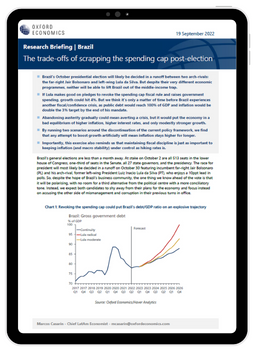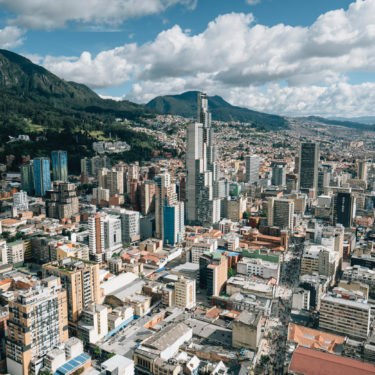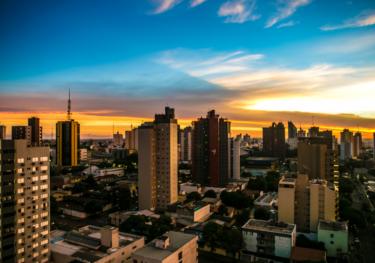The trade-offs of scrapping the spending cap post-election in Brazil

Brazil’s October presidential election will likely be decided in a runoff between two arch-rivals: the far-right Jair Bolsonaro and left-wing Lula da Silva. But despite their very different economic programmes, neither will be able to lift Brazil out of the middle-income trap.
What you will learn:
- If Lula makes good on pledges to revoke the spending cap fiscal rule and raises government spending, growth could hit 4%. But we think it’s only a matter of time before Brazil experiences another fiscal/confidence crisis, as public debt would reach 100% of GDP and inflation would be double the 3% target by the end of his mandate.
- Abandoning austerity gradually could mean averting a crisis, but it would put the economy in a bad equilibrium of higher inflation, higher interest rates, and only modestly stronger growth.
- By running two scenarios around the discontinuation of the current policy framework, we find that any attempt to boost growth artificially will mean inflation stays higher for longer.
- Importantly, this exercise also reminds us that maintaining fiscal discipline is just as important to keeping inflation (and macro stability) under control as hiking rates is.
Tags:
Related Services

Service
Latin American Cities and Regions Service
Forecasts for key economic, labour market and industry variables for major business centres in Latin America.
Find Out More
Service
Latin America Macro Service
A complete service to help you track, analyse, and react to macro events and future trends across Latin America.
Find Out More
Service
Economic and Political Risk Evaluator
A framework for assessing economic and geopolitical risks.
Find Out More